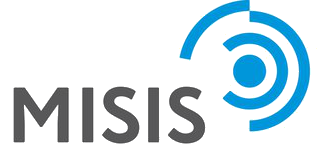Academic writing is something that even well-established, native authors have difficulty with. Imagine the plight of non-native aspirants! Writing may be an art that may come naturally to a few, but academic writing is a whole different ball game altogether. Academic writing is a developed skill.
A fiction author, no matter how good he/she may be, cannot usually compile and draft extensive research and still make it sound interesting (without practice). Here, the source material (plot) is nowhere near as interesting as that of fiction, at least not to the general public.
So, how could you, as an international student of English, tame the beast called academic writing? Here are three unique ways to improve your skills.
Learn the Types and Formats
It’s always better to know everything about the task at hand before taking pen to paper. Learn the different types of essays. There’s the narrative essay that weaves a story to the reader. Descriptive essays paint a picture of any object through words. Expository essays are statements of facts, whereas persuasive ones, as the name suggests, persuade the reader to accept the writer’s opinion.
Then there are the citation styles, namely the American Psychological Association (APA) style, Modern Language Association (MLA) style, and the Chicago style. The citation styles differ depending upon your chosen field of study. Furthermore, confirm the writing format of the academic article with the professor. Is double spacing expected? Which font and size should you use?
Get Writing Help
Are you one of those people who always prefer to work alone? Well, you will need to change your habit just this once. You may have taught yourself how to write in English, but you are bound to need help with the academic part of it. Ask your professor to assign more academic essays to you than normal, and heed every piece of feedback that you get.
You can also request your native English friends to help you out with the task. Alternatively, you may sign up for a private writing workshop or join an ESL academic group if there’s one in your college.
Don’t have any native English friends or ESL groups, and afraid to approach the teacher? Online academic writing services will come to the rescue! Check out the ultimate list of trusted services that help with writing, and pick the one that suits your requirements and budget. These services have an elite group of academic writing experts in their employ who will help you hone your skills till they are sharp as a dagger.
Translate and Write
Many authors would recommend that you write as you speak. However, it’s not easy for international, English as a Second Language (ESL) students to do that. They tend to mentally translate a sentence in their native tongue to understand it. Similar is the case while speaking English. But did you know that most of the academic writing assignments require a formal tone? And that’s exactly what you get when you literally translate from one language to the other – a formal tone!
In this case, you might just have an edge over the native English students. They need to alter the conversational tone of their writing and adapt to a more formal sound. And trust me, doing that is much more difficult than translating.
You, on the other hand, can simply pen down what you translated in your head. Just take care of the grammatical and logical inconsistencies, and you will have a crisp, unique and perfect academic write-up as the output.
Academic writing isn’t that difficult now, is it? If you follow all the above points, then you can master the art of academic writing in no time. And yes, it is an art, similar to normal writing, that comes with practice. You may confuse one for the other in the initial stages, mix up the tones, muck up the formats, but after a few good days of long, relentless practice, you will definitely become one of the best academic writers in college.
A final word of advice – instead of browsing through long-winded guides on academic writing, simply read the completed assignments and essays by other accomplished academic writers. Know that you are capable enough to figure out your rights and wrongs on your own!
About the writer: Carol Duke is very keen on teaching students new, effective ways of learning. When not freelancing and blogging on education-related matters, Carol enjoys traveling, taking immense pleasure from visiting new countries.


